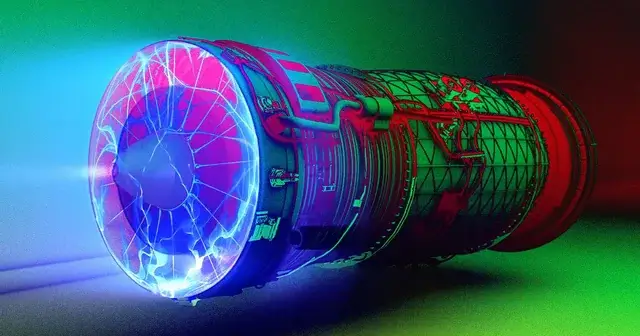Revolutionary new smart masks can diagnose health conditions
Discover EBCare, a smart mask that revolutionizes health monitoring by analyzing breath in real-time to detect respiratory and metabolic conditions.

EBCare, a smart mask by Caltech, analyzes breath to monitor respiratory and metabolic health. Explore its groundbreaking potential in personalized healthcare. (CREDIT: Caltech/Wei Gao and Wenzheng Heng)
Wearable devices for health monitoring have evolved significantly in recent years, with innovations ranging from watches and patches to sensors that track heart activity and inflammation. These devices empower individuals to manage their health from the comfort of home.
Among the latest advancements is EBCare, a smart mask designed to monitor respiratory and metabolic health by analyzing exhaled breath condensate (EBC) in real time. This high-tech mask not only collects breath samples but also analyzes their chemical composition to detect health markers.
Developed by Wei Gao, a professor of medical engineering at Caltech, and his team, EBCare introduces a groundbreaking approach to health monitoring. Unlike existing devices that monitor physical parameters such as breath rate or temperature, EBCare targets the molecular information embedded in breath.
This innovation opens new possibilities for managing conditions like asthma, chronic obstructive pulmonary disease (COPD), and post-COVID-19 respiratory issues.
“Monitoring a patient’s breath is routinely done in clinics for conditions like asthma. However, it requires physical visits and waiting for lab results,” Gao explains. “Since COVID-19, mask use has become more common, presenting an opportunity for remote, personalized health monitoring. EBCare enables real-time feedback on health from anywhere.”
The mask’s design tackles a significant challenge in EBC analysis—cooling and condensing breath into liquid for chemical analysis. Traditionally, this step involves bulky equipment like ice buckets or refrigeration units. EBCare incorporates a self-cooling mechanism using hydrogel evaporative cooling and radiative cooling, making the process portable and efficient.
“This mask marks a paradigm shift in respiratory and metabolic disease management,” notes Wenzheng Heng, a graduate student at Caltech and the study’s lead author. “Breath condensate contains a wealth of data, including metabolic substances, inflammatory markers, and pathogens, which can now be analyzed seamlessly in daily life.”
Once the breath is converted to liquid, the mask employs bioinspired microfluidics to transport the sample to sensors for immediate analysis.
Related Stories
Drawing inspiration from how plants transport water, this system ensures rapid and efficient delivery of samples to electrochemical biosensors. The results are then transmitted wirelessly to a smartphone, tablet, or computer. Notably, the material costs for each mask are estimated at just $1, making the technology accessible.
In human trials, EBCare demonstrated its potential across various applications. The team focused on patients with asthma and COPD, monitoring nitrite levels in breath as an inflammation biomarker. The mask reliably detected these levels, highlighting its precision in tracking airway inflammation.
The mask’s versatility extends beyond respiratory health. It has shown promise in detecting blood alcohol levels, suggesting potential applications in on-site alcohol monitoring. Similarly, it could aid in managing kidney disease by evaluating blood urea levels through breath analysis.
Urea, a byproduct of protein metabolism, accumulates in blood as kidney function declines. The study confirmed that EBCare accurately measures ammonium levels in breath, which correspond to blood urea levels.
“These initial studies provide a proof of concept,” Gao states. “Our goal is to expand the technology to include a broader range of health markers, establishing a versatile health-monitoring platform.”
The smart mask’s comfort has also been tested, with participants, including those with respiratory conditions, reporting positive experiences.
“The platform represents a significant leap in real-time lung health monitoring,” says Harry Rossiter, a co-author and professor at UCLA. “The potential to add biosensors for diverse compounds underscores the game-changing nature of this technology.”
EBCare’s real-time monitoring capabilities promise to transform health diagnostics. By integrating advanced cooling, microfluidics, and biosensing into a low-cost, wearable device, the mask provides an unprecedented level of convenience and precision.
As researchers work to incorporate additional health markers, EBCare could become an essential tool for managing a wide range of medical conditions, paving the way for a new era in personalized healthcare.
Note: Materials provided above by The Brighter Side of News. Content may be edited for style and length.
Like these kind of feel good stories? Get The Brighter Side of News' newsletter.



